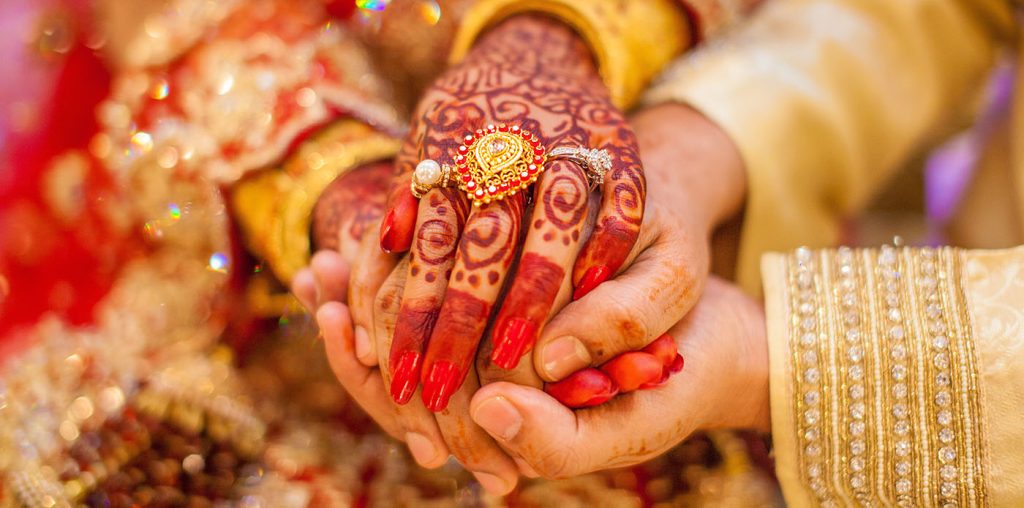Couples merging very different Hindu heritages are redefining the religion in America
By Murali Balaji
When my wife and I started dating, we thought our shared Hindu faith would make things simpler. We had friends who had dated non-Hindus who had encountered bumps when it came to how they would tie the knot and how the children would be raised. The fact that we were both Hindus meant we could sidestep those kinds of interfaith hassles.

We soon learned that, even though we both called ourselves Hindu, some key differences in the way we each practiced the faith complicated our relationship.
The Hindu identity of my wife’s family was shaped by generations of living in Guyana, a former British colony in South America. Their practice was shaped by the trauma of indentured servitude, pressure from Christian missionaries and cultural hybridity over generations in the West Indies.
My family traces its lineage to the South Indian state of Tamil Nadu, where our faith was shaped by thousands of years of rituals and rites of worship, some of them germane only to Tamils.
As our lives were intertwined, I adapted to singing devotional songs that were foreign to me while growing up. I learned to celebrate Holi, which is less known in South India. My wife, for her part, had to familiarize herself with my family’s observance of regional festivals such as Pongal, celebrating the sun Deity Surya, which is observed widely in the Tamil diaspora on January 14.
Our conflicts may not have the same implications as a Catholic marrying a Protestant. Nonetheless, nearly two decades after we met, we still occasionally encounter tensions about when to celebrate a given holiday or which mantras—prayers—are correct in certain religious observances. Over time we have come to understand that our differences are cultural deviations, and that our spiritual practices are enriched when we meld the best of both of our backgrounds.
In raising our child, we are combining elements of our cultural practices and theological interpretations of Hinduism, making sure that he participates in the Hindu devotionals that enabled his Caribbean ancestors to maintain their religion through a life of bondage, while teaching him how to identify religious symbols in Tamil, my ancestral language.
Groups such as the Pew Research Center that study religious demographics don’t keep data on inter-cultural and inter-tradition relationships and marriages, but such bonds among American Hindus are clearly on the rise as the children of different diaspora communities meet at school or at work and have begun identifying more with the idea of being Hindu than belonging to a specific sect or tradition within the faith.
The choices American Hindus make about who they will marry will have profound implications for the next generation. In some sense, the implications are contradictory. Some Hindus will inevitably move away from regional and cultural identities—losing some of their grounding in the faith—while at the same time more deeply embracing a faith based on common devotional practice.
But younger American-born Hindus are also less attached to theological considerations or fidelity to a sampradaya, or philosophical tradition. As a result, more Saivites are marrying Vaishnavites or devotees of the Goddess Shakti. This could mean some sampradayas may see a dip in their memberships as more Hindus identify with a broader religious community and a more unified idea of American Hinduism, distinct from other Hinduisms in regions like South Asia, Southeast Asia and the Caribbean.
For those of us who are now raising that next generation, these changes are an opportunity and challenge as we redefine what it means to be Hindu in America.
Murali Balaji is a journalist and a lecturer at the Annenberg School for Communication at the University of Pennsylvania.
